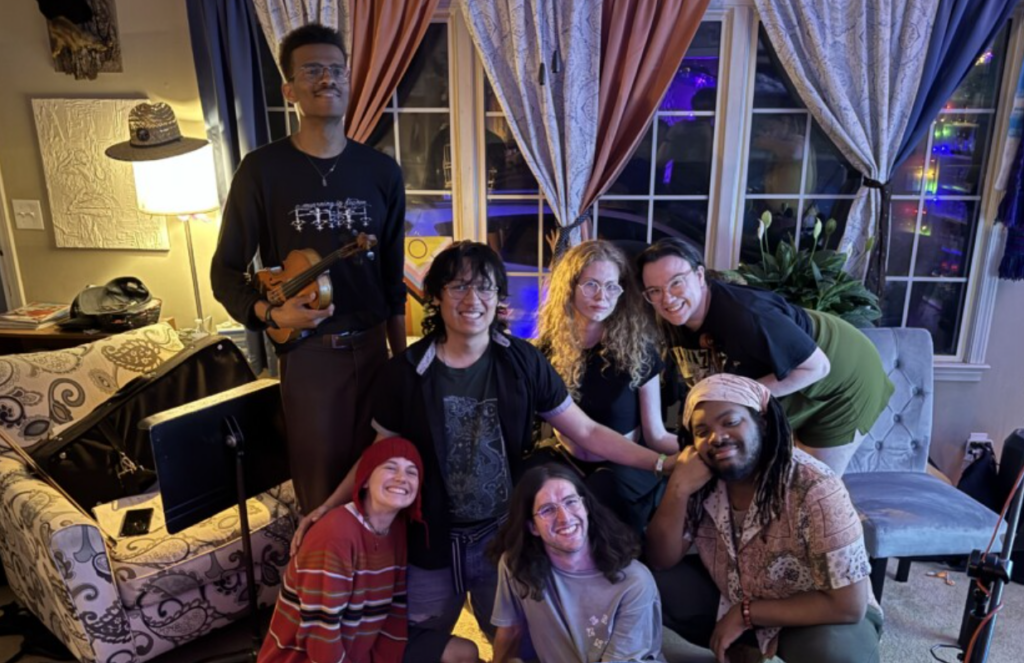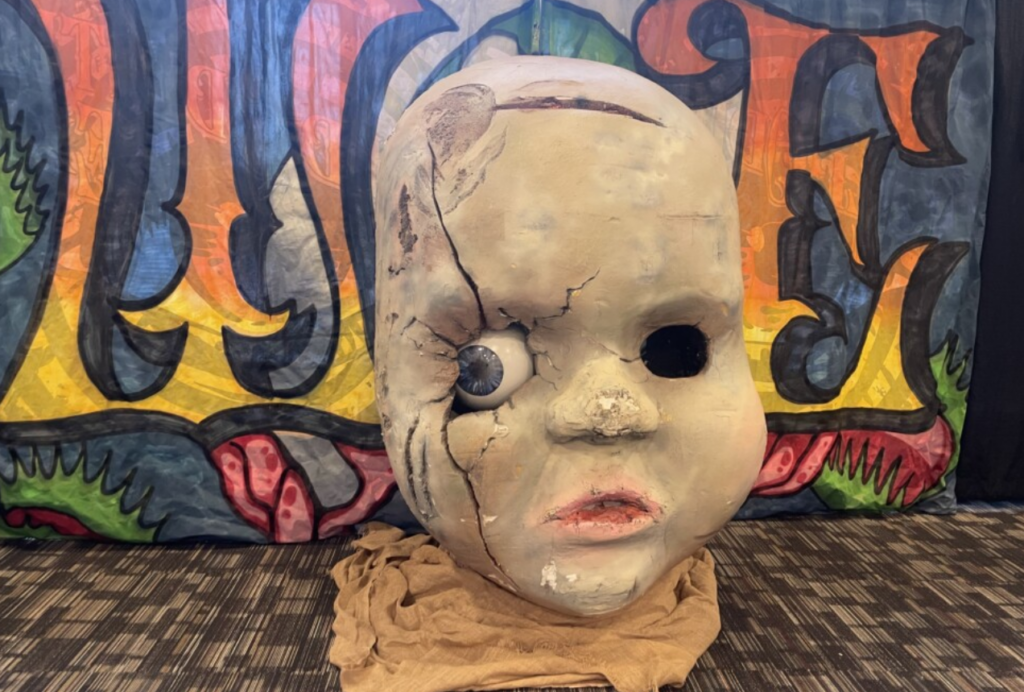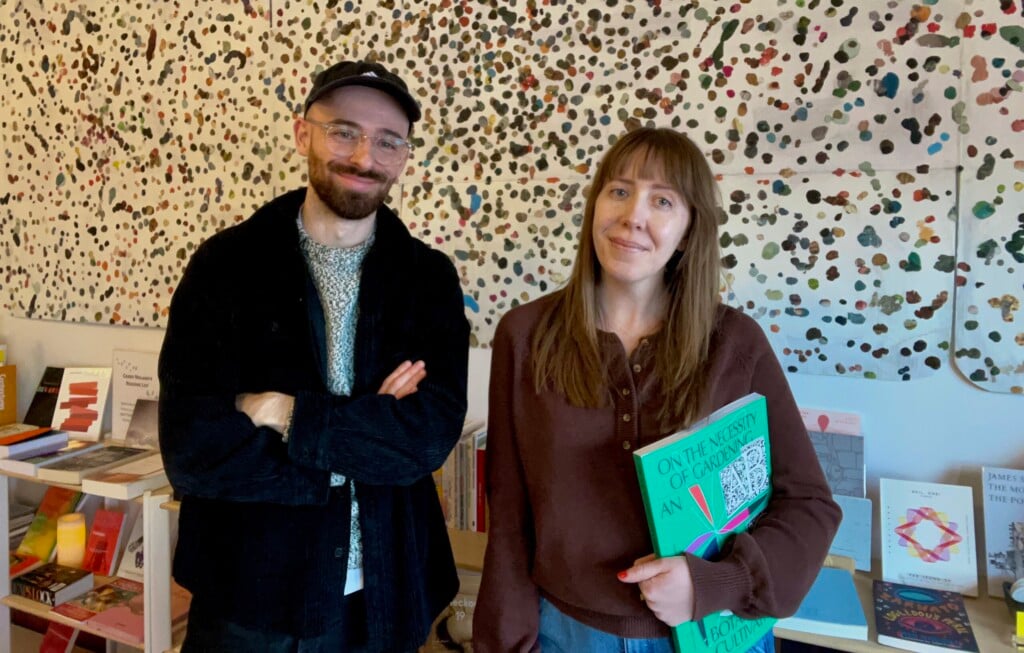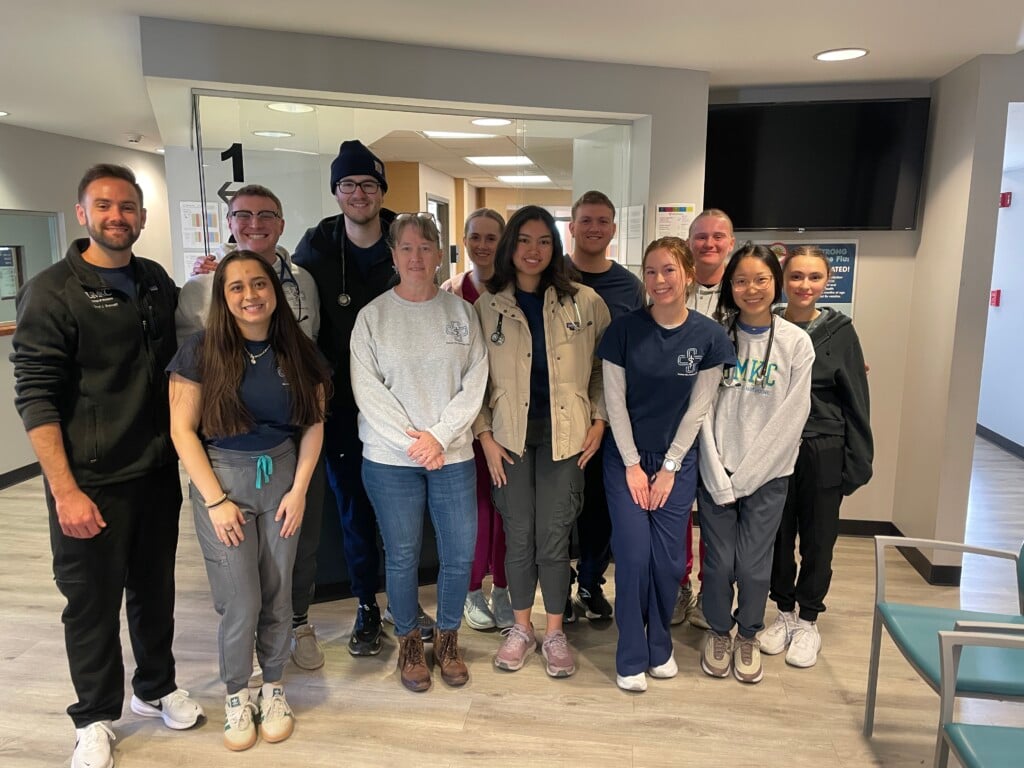Comedian Kyle Ayers swings through The Ship on ‘Hard to Say’ tour
Kansas City native comedian Kyle Ayers is making a stop in his hometown for a show June 28 at The Ship as a part of his Hard To Say tour.
Years after Ayers’ first shot at comedy, an open mic night where the host told him to kill himself following his performance, his accomplishments include but are not limited to writing for Comedy Central, creating Boast Rattle, and continuously battling a chronic pain disorder, trigeminal neuralgia. You might also know him from his movie podcast, Never Seen It, where he re-writes movies he’s never seen with fellow comedians or from that time he live-Tweeted a breakup on Twitter and went viral for it.
Ayers’ Hard To Say tour gets real about his struggles living with a rare nerve disorder while simultaneously giving audiences something to laugh about nationwide.
The Pitch: Your first shot at stand-up comedy wasn’t the greatest. What motivated you to get back up there?
Well, after the first time it went so horribly wrong, I took a gap year. Maybe forgetting about the first time, like how an animal forgets what a potential threat is, and goes back and gets stung by a bee again.
How would you say that your nerve disorder has impacted the way that you approach comedy?
I have a lot more patience. Whether it’s with getting something done or with other people, I’m not as frustrated with strangers. If someone’s not laughing in the front row or something, I don’t know what they’ve been carrying around all day. I’m not so immediate to judge someone, that sort of thing. It’s kind of the first time any of my standup has been truly autobiographical, rather than just jokes based on an idea of something about me. So this is the first time I’ve been this genuine. I never thought this would be the kind of comedy I would be doing. I thought I would do observational wit rather than introspective jokes.
Your show is a show about chronic pain, trigeminal neuralgia, brain surgery, pills, experiments, and when none of that works. What does talking about that for a live audience look like?
From the show that I did just the other night, it’s still a lot of jokes and tangents and asides, but I’ve added jokes about more serious topics. I’m finding that framing them this way makes it a little more fun and a little easier for people to get into rather than just doing a traditional stand-up set. Having a narrative, theme, and message is all a new thing to me that I’ve enjoyed. It seems to resonate with people as well and that’s something that makes it feel like stand-up comedy plus a little bit more on top. It was a pleasant surprise for me.
I know your journey with trigeminal neuralgia has been a painful one. How do you push through that when you have to get on stage?
just explain it to people, and I’ll have to stop for a minute because my head will be sort of convulsing a little bit. People generally understand. I haven’t got too much pushback on, I have a degenerative brain disease—will you guys be patient? It’s like the phrase you say to guilt people into listening.
How planned out are your shows when you get up there? Do you go with the flow and change things up as you go?
I’m always changing it. If you came to two of these Hard To Say shows back to back it won’t even be the same. I’m always going off of audience responses and in this show, I have interactivity, discussions with people, and visual things as well. It’s sort of like there are many forks in the road and directions it could go but then you always come back to that main road.
Have you noticed a difference in how the audience reacts based on where you are geographically?
Not as much as I think people might believe. There will be some obvious differences between Montgomery, Alabama, and Portland, Oregon for example. But I always just try and stick to what I think is funny and never adjust what a show is. I think I haven’t really run into that as much as I believed I would when I started doing comedy around the country.
How did you come up with the concept for your movie podcast?
It started at a live show because I was tired of getting made fun of for not having seen The Wire. I’d be out at a party or something and people are inevitably always talking about shows. I started picking up on details from being talked to about it that I just started telling people my favorite parts of a show I’d never seen so I wouldn’t be shamed. Like, yeah, Omar is my favorite character. I thought it would be fun and that I could write an episode of this. That’s kind of what led to the live show, which led to the podcast.
What’s it like coming back to KC for a show?
Every time I come back, the art scene and the cool things-to-do scene is so much bigger than it was last time. When I was growing up, the West Bottoms wasn’t exactly the cool things area. But I like coming back again because it just keeps changing for the good. The Chiefs are better at football every time I come home.
This show is so fresh. Kansas City is gonna be one of the first times I’ve done it. I’m excited to see how it develops, grows and resonates with people. Whether you have any sort of chronic pain, not just what I have, but anything. Or if you have something that people can’t see, it’s very tough to know what people have going on. It’s opening up a conversation that I didn’t know it would, but I’m happy about it.






